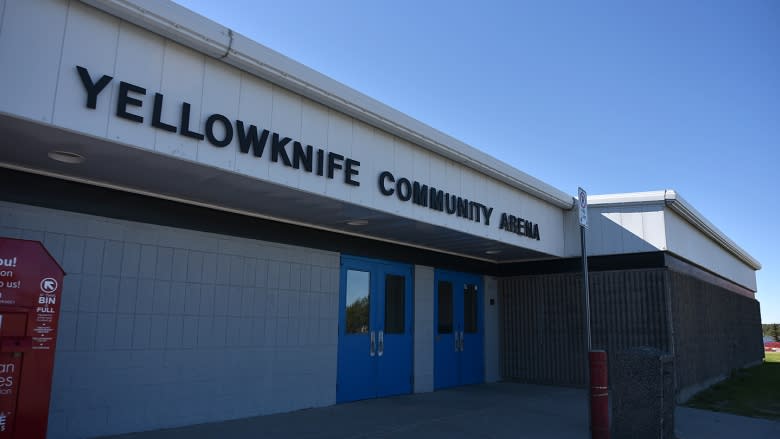Hockey fees climb but registration 'higher than ever' in some Yellowknife divisions
It's getting more expensive to register their kids in Yellowknife minor hockey but that doesn't seem to be slowing down too many parents.
Fees have gone up this year anywhere from $60 to $100 per player, depending on the division, according to Steve Thompson, president of the Yellowknife Minor Hockey Association.
That means this year's fees will range from $480 to about $700, yet Thompson said registration numbers are a little higher than last year at this time, particularly in the youngest divisions.
"Registration in Timbits and initiation [divisions] are higher than ever," Thompson said. "We're at over 100 kids in those two areas combined."
Still, some parents say the cost of minor hockey has become prohibitive.
Clayton Bell, a Yellowknife parent, took to Facebook to express his concerns about the cost of hockey this year, and he said he's not alone.
"There are many others. I know of quite a few families that aren't joining this year due to fee increases," Bell wrote in a Facebook message to CBC.
Thompson said he knows of four parents who have gone on record with the association to voice concerns about the increased fees.
"We definitely sympathize. We're trying to keep hockey affordable," Thompson said.
"We don't enjoy raising fees. It definitely uses up a lot of our board [of directors'] time trying to figure out where we can cut and what we can do to keep fees down."
New fees
The new fees include a photo package at about $25 per player and a new skills training program costing just under $15 per player.
Thompson said the photo package was something parents were paying for later in the season anyway, while the skills training is something that had to be contracted out.
"We have entered into a contract with a company down south to provide us with power skating and high-level skill training that we just haven't been able to provide over the last couple of years," he said.
Contracting out the training — which Thompson said will be available across all divisions and skill levels, male or female — was a decision meant to prevent asking too much of association volunteers.
"The problem is we have the same volunteers doing everything. We might have 420 people [registered] but we have the same 15, 20 people doing all the work and they're just getting burnt out, so we had to go outside the organization," Thompson said.
The association is volunteer run except for one paid part-time administrative position meant to take some of the administrative workload off the volunteer board.
"The amount of work that we were doing, we just couldn't keep up with everything we needed to do as volunteers with the workload," Thompson said.
Ice rental expensive
The rest of the fee increase was a split between development and administrative costs, including the increased cost of renting ice time time from the city.
"We spend between $185,000 and $200,000 a year on ice time," Thompson said.
Assuming there are 452 players this year — the association's working assumption for registration when it comes to determining fees — it could cost the league up to $442 per player to rent ice for the 25-week season.
In reality, different divisions have different amounts of ice time and training, which explains the range in fees.
That's the biggest single expense for the association and it's one that's not expected to decrease anytime soon, Thompson said.
According to city report in May, an annual three per cent fee increase on Yellowknife city-owned facilities, like the Multiplex and the Yellowknife community arena, is required to keep up with increasing labour and maintenance costs.
The alternative is a one-time fee increase, which, for the Yellowknife arena, could be a 25 per cent jump. Doing that would impact the affordability of facilities too much, the report states.
Thompson said the association does what it can to make sure everyone who wants to play is able to play. That includes working with national hockey sponsorship programs — like the Canadian Tire Jumpstart program — and deferring fees until they can be paid.
"We do our best to get parents in touch with the people they need to," Thompson said.
"We'll help them through the registration process. If they don't have the money up front, we'll take a percentage of what they can afford at the time and wait for the Jumpstart money to follow in later."
The association also has hockey gear donated by families and that is either shared with young players in need or donated to Hockey North for distribution in the communities.



